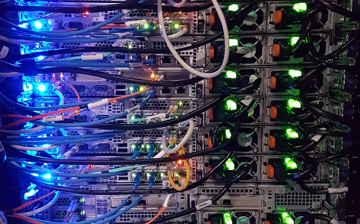
At present, the department of computing has the following core research groups: Software Engineering (SWERG), Computer Intrusions, Forensics and Exploitations Research (C.I.F.E.R), Complex system modeling, Knowledge Discovery and Intelligent Systems (K.D.I.S), Web animation and Visualization and eLearning (WAVE) and Parallel Computing. Some of the ongoing researches within our groups are described below.

Computer Intrusions, Forensics and Exploitations Research

Complex systems Modelling group’s area of interest includes: spatial computing systems that adhere to the amorphous computing model, and the development of supporting software simulation tools in addition to robotics and animation, especially in education applications, many of...

In recent years we have witnessed the rising use of networked computer devices for monitoring environments and mobile communications. These use cases require new methods for approaching sensor deployment, protocol design, and information security.

KDIS’s objective is to solve problems in domains where knowledge is embedded in humans as well as structured and unstructured data.

Parallel computing group develops parallel algorithms on parallel virtual machines for scientific and engineering computation with cases for active thermal control processes and atmosphere processes.


SWERG’s area of interest include: Software security, requirement engineering, and software Modelling, eLearning, Component-based software engineering, software certification and formal methods.